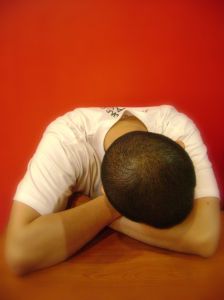 Attending college is exciting, enriching, and eventful, but it can also be detrimental to your health. Between juggling a schedule that is full of classes, homework, studying, part-time work and extracurricular activities, some college students find themselves burnt out before the end of the first semester of their freshman year, and their immune systems are left to suffer the consequences. In addition to a crazy schedule, some college students also put their health at risk by choosing to make poor choices in terms of diet, physical activity and alcohol and drug use.
Attending college is exciting, enriching, and eventful, but it can also be detrimental to your health. Between juggling a schedule that is full of classes, homework, studying, part-time work and extracurricular activities, some college students find themselves burnt out before the end of the first semester of their freshman year, and their immune systems are left to suffer the consequences. In addition to a crazy schedule, some college students also put their health at risk by choosing to make poor choices in terms of diet, physical activity and alcohol and drug use.
Because it is the first time in their lives that they have had the freedom to do as they wish, whenever they wish, college will teach life lessons that will turn children into adults. It’s important, though, to build a good foundation and guide your children towards the right health path before setting them loose on campus. Starting from a young age, here are simple lessons to teach your children about staying healthy in college and all the way through life.
College students may not be the best cooks, but that doesn’t mean they should give up eating at home. Teach your children simple recipes and share easy-to-make, snack ideas that they will fill them up for lunch. Avoiding the restaurant trap will not only stop unwanted weight gain, it will also save money. Not to mention, getting your food from the grocery store allows you to purchase fresh veggies and fruits that are necessary for a strong immune system.
 Drink Water Like Your Life Depends On It (Because It Does)
Drink Water Like Your Life Depends On It (Because It Does)
There’s a good chance your college-bound teen will eventually try alcohol. They may even begin to have a few drinks two to three nights a week. On top of this, they will likely begin drinking coffee in the morning to stay awake during their morning classes (they may even drink it at night to stay awake during a midnight exam crunch). It’s crucial that they don’t forget to balance their alcohol and caffeinated drink consumption by drinking a lot of water during the day. In addition to teaching your children the importance of drinking enough water, discuss the negative consequences of alcohol abuse. If you know they will eventually drink alcohol, advise them to drink slowly, to limit their intake to one to two drinks per night and to drink water in between drinks.
College students need at least seven hours of sleep every night to maintain their health and to be alert for their classes. Maintaining a set schedule is the best way to ensure a good night’s rest. Yes, that means you will need to teach your child the importance of setting and keeping a “bed time.” There’s a good chance they won’t always be in bed on time, but once they see how difficult it is to get things done during the day when they haven’t had enough rest, they will remember the lesson you taught them and try to implement it.
Maintain Basic Personal and Home Hygiene
College dorms and classrooms can be just as full of germs and sickness as a kindergarten classroom, especially during the cold and flu season. If you stress the importance of washing your hands, covering your nose and mouth when you sneeze and cough and keeping a tidy home, it will decrease your child’s chances of getting sick while away at college. Keeping your dorm or apartment clean is especially important. Weekly chores that college students should maintain to keep clean include washing their bed sheets, doing their laundry, dusting, disinfecting bathrooms, vacuuming and cleaning dirty dishes and kitchen counters. It’s also important to teach your child to stay at home when they are sick, to minimize the spread of illness and to see a doctor, if they believe they need medical care.
Lastly, it’s good to share the simple advice, “If it looks unhealthy, it probably is.”
– Lauren Bailey is a freelance blogger for www.BestCollegesOnline.com. Her articles cover topics related to trends in education, student advice and teaching methods, and in her spare time, she works as a Spanish tutor to non-traditional students. You may reach her with your questions or comments at [email protected].


